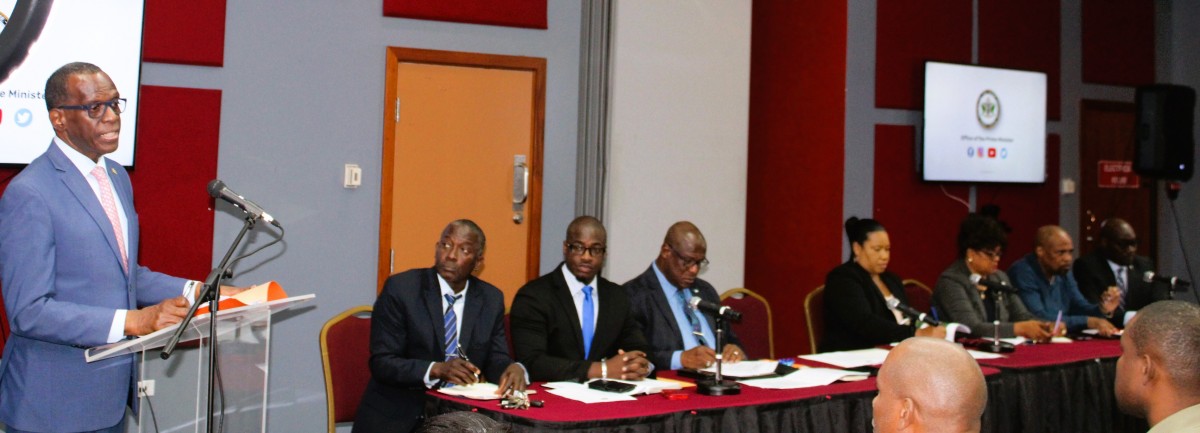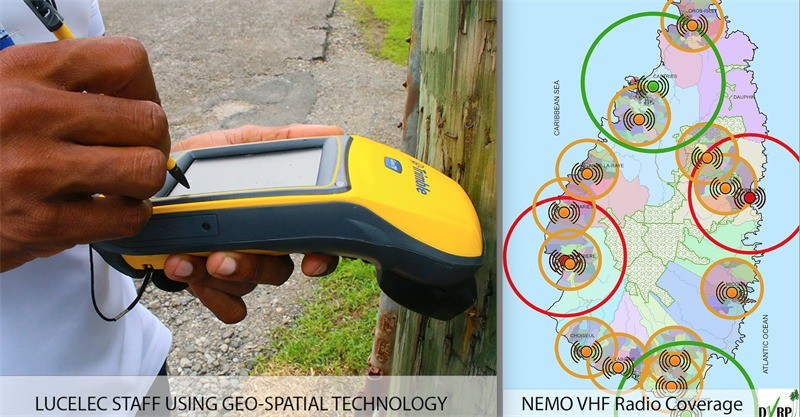By Caribbean News Global contributor
CASTRIES, St Lucia – Reactions to the weather phenomenon November 6, between the hours of 11 am to 2 pm, November 6, – where approximately 157 millimetres or 6.1 inches of rainfall was recorded in the north of the island and approximately 104 millimetres or four inches of rainfall recorded in Forestierre, Castries; and according to the government of Saint Lucia (GOSL): “The loss and damage assessment on the commercial sector in the affected zones are continuing and will be reported subsequently,” added, this is “not including the projected losses suffered by the affected businesses, preliminary cost estimates, at present, exceed EC$6.2 million.”
Separation of powers
An insightful retort to Caribbean News Global (CNG) article, St Lucia struggling with climate change – torrential rain and floods, advised:
“We’ve known for years, the possibility and horrors, marking the situation of unplanned and sham developments, subject to a bag of tricks – underhand and under the table – that has now resulted in an absolute national shame.”
St Lucia struggling with climate change – torrential rain and floods
The rejoinder advised:
“Three effective elements of Saint Lucia’s weather phenomenon that has now resurfaced are disaster management, climate science and the need for [real] controlled development. [ Forget the Development Control Authority (DCA) in this conversation, they’re not there yet ].
“Moreover, the worse that has happened is playing games with national security, trade and development – with the expectation to score political points.”
Thinking from side to side, it is easy to redirect on the former government’s policy, spirit of mind ‘invented rhetoric’ and whether it ought to have been abandoned sooner – “water boy” politics that has developed into a severe “flood boy.”
The renewed dialogue, unsurprisingly twangs to average minds is unwilling to accept blame, repeatedly, stating challenging issues.
Parliamentary standards
Saint Lucia’s economy is controlled by politicians, the underground economy, [ crime, trading in drugs, human trafficking, extortion], and tourism-related fronts.
The argument of desilting rivers and streams is a political adventure, and relevant to the recent floods, the level of dealing, non-dealing and incomplete deals are well-known.
Conversely, dealing with total jerks towards a reversal of hardline stance on various national issues and providing an opening to wedge the government, engaging in aggressive bluster, only seemed to make things worse.
The leadership style of political governance at the detriment of national interest has proven counterproductive. This has further run the risk of providing expediency to constant sabre-rattling.
Political infantilism and mediocrity
Experience teaches that the implications are clear. A national approach is required. Clear-headed thinking of adults, to address a national shame – St Lucia’s weather phenomenon: Unprecedented?
According to the Gros Islet MP: “There are five initiatives that I have identified that must be done as soon as possible”:
- The re-establishment of Community Disaster Response Teams in strategic communities in the constituency;
- The establishment of a database of persons in disaster areas;
- Collaborating with the Insurance Council on an education drive on home insurance;
- Continue to lobby for desilting and gabion baskets in Gros islet;
- Gros Islet Telethon to raise funds for victims.
Climate science
Speaking on the weather phenomenon is the exposure of positive and negative growth – cohesive planning vs circular management – concerted direction and vision, with a public service, that goes along to get along.
Saint Lucia’s weather phenomenon: Unprecedented? – revealed the intensity of rainfall within two hours in the concentrated hotel enclave of the north is perhaps “a research assignment on climate science, I would perhaps advise and assign to the ‘youth economy’,” said a GOSL consultant. “ Moving forward, with a development agenda, we must understand how this weather phenomenon precipitated in quick order to – reclaim the natural course of rivers, and reclaimed forgotten waterways.”
“Did the weather phenomenon revive decades-old dry river beds in the Cap Estate region? Have our ancestors reclaimed their land and are preparing for re-vegetation? he added. “Has the GOSL and select contractors applied the correct techniques to desilting our rivers and; have disaster management techniques, proven suitable/applicable in our hemisphere?”
Pointing to the weather phenomenon, now is the time for greater investments in technological research, innovations and artificial intelligence (AI). The solutions and opportunities can be directed through, S.T.E.M programme and the ‘youth economy’.
GIS – NSDI project
On the heels of understanding climate science to St Lucia’s weather phenomenon: Unprecedented?: a GIS – NSDI project says the GOSL, allows departments to produce, share and analyze data to streamline processes, explained:
“The use of Geo-Spatial technology in the country’s development shows massive potential. It could provide, for example, a quicker response time from first responders; the ability for motorists to find faster or easier routes; more effective warning systems for natural disasters; and better planning for housing.
“The NSDI refers to all of the elements that allow persons to produce, share and analyze data. This includes the usual components of NSDI – hardware, software, data, people and standards. The hardware consists of anything that we use: it could be a handheld GPS device, a phone, a laptop with software that displays maps. The software refers to the applications we use to access geographic information and to collect geographic information.”

There is innovation in everyone
Every factor to acknowledge St Lucia’s weather phenomenon, including disaster management, climate science and development, bears the utlimate responsibility of the GOSL.
There is innovation in everyone, and perhaps, now is the time for the GOSL to articulate a vision not beheld from coal – sugarcane – bananas – tourism.
Now is the time to move away from a reactive mode of governance – one national shame to another, given what’s at play.
The GOSL needs to convey a read-to-work assertiveness and communicate a vision, a holistic plan – that concentrates on more seriousness and less noise.







